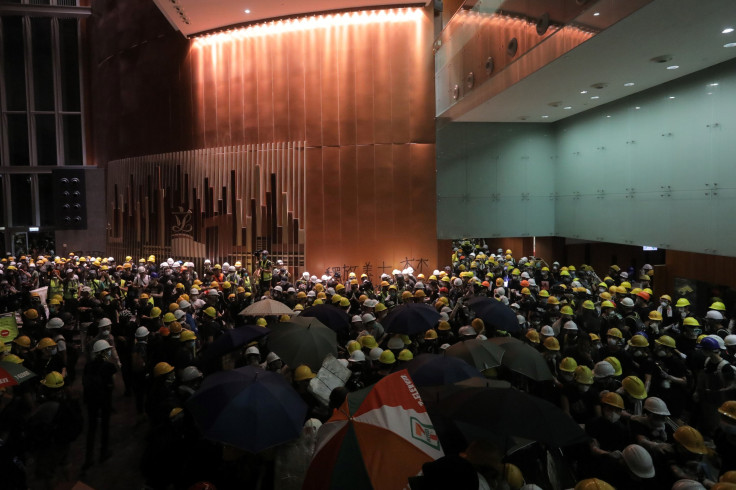Hong Kong Protests 2019: What Exactly Are The Protestors Fighting For And Why?

A controversial extradition bill that would allow mainland China to arrest people on the streets of Hong Kong has outraged citizens and has resulted in the Hong Kong government suspending the legislation.
Making sense of the protests and the bill may seem difficult. The demonstrations began in early June and drew one-sixth of the population to peacefully protest. Activists fear the bill would no longer leave Hong Kong as a safe haven from the mainland and that those accused of doing activities against the mainland Chinese government would be forcibly sent to the mainland, where they would face an unfair trial and possible torture.
Hong Kong, which had its handover from British rule back to China in 1997, is an autonomous zone governed separately from mainland China. Protesters are concerned the bill would allow China to further encroach on Hong Kong's independence.
"The proposed changes to the extradition laws will put anyone in Hong Kong doing work related to the mainland at risk," Sophie Richardson, a China researcher at Human Rights Watch said. "No one will be safe, including activists, human rights lawyers, journalists, and social workers."
Hong Kong's top official Carrie Lam had defended the bill, as she believes it would prevent Hong Kong from being a safe haven for fugitives that are wanted on the Chinese mainland.
Lam said on July 9 that the bill is "dead," yet that has not gone far ahead enough to meet the demands of the protesters, who want the legislation completely withdrawn.
The protests have grown even more chaotic, as demonstrators believe the Hong Kong government is trying to placate them. Organizers said 430,000 attended a Sunday rally, which involved police firing rubber bullets and tear gas at protesters. There also have been multiple suicides as a result of the protests, and authorities now fear that dangerous gangs are getting involved. On Friday, the police found bombs and other explosives during a warehouse raid.
"Hong Kong is a very safe city. We will maintain the law and order in the city. We know that citizens have a lot of complaints to the society, but I will look for the roots of the problem," Lam said in response to the violence.
The Economist Intelligence Unit in 2016 rated Hong Kong a "flawed democracy," which has meant Hong Kongers have taken to dissent to have their voices heard.
In 2003, roughly 500,000 Hong Kongers protested a controversial security bill. Hong Kong also saw mass demonstrations in late 2014 against electoral reforms proposed by the government in what became known as the Umbrella Movement. Protesters were particularly incensed by the possibility of mainland China pre-screening candidates for the role of Hong Kong Chief Executive.
© Copyright IBTimes 2025. All rights reserved.





















